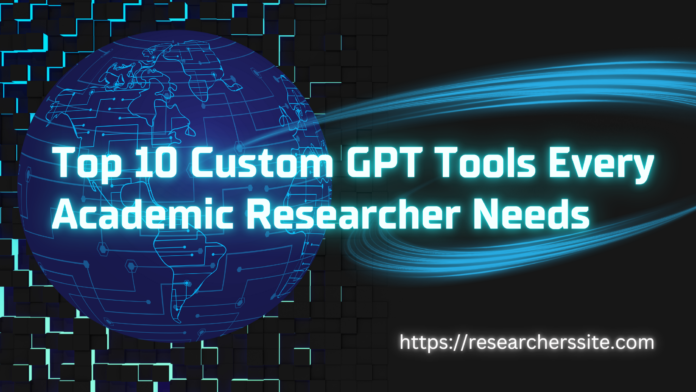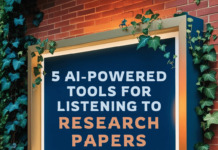Introduction
In the fast-paced world of academic research, efficiency and accuracy are paramount. With the advent of AI, custom GPT tools have emerged as game-changers, streamlining various aspects of research. Here, we explore the top 10 GPT tools that every academic researcher should know about.
Top 10 Custom GPT Tools Every Academic Researcher Needs
Research Summarizer GPT
This tool transforms lengthy research papers into concise overviews, highlighting key findings and methodologies. It’s ideal for quickly grasping complex studies without getting bogged down in details. Perfect for time-strapped researchers needing swift insights.
Literature Review GPT
Data Analysis GPT
This cutting-edge tool makes data analysis easy by providing statistical summaries, visualizations, and insights. It simplifies the process, making it accessible for researchers without extensive statistical knowledge, ensuring accurate data interpretation.
Citation Manager GPT
Generating citations in various styles (APA, MLA, Chicago), this tool organizes references seamlessly. It ensures proper citation formatting and prevents plagiarism, essential for maintaining academic integrity.
Hypothesis Generator GPT
This tool suggests potential hypotheses based on existing literature and research questions. It aids researchers in formulating testable and relevant hypotheses, fostering creativity and aligning with current research trends.
Experimental Design GPT
This tool assists researchers in designing robust experiments by helping them choose suitable methodologies and controls. It ensures the reliability and validity of research findings, which is essential for producing effective and credible studies..
Grant Proposal GPT
This tool aids in crafting compelling grant proposals by offering templates, tips, and customized content. It helps researchers clearly articulate their research ideas, enhancing the quality of proposals and boosting the likelihood of securing funding.
Additionally, it provides advice on structuring proposals effectively and addressing essential criteria that funders seek. By improving clarity and emphasizing the most impactful aspects of the research, this tool strengthens the overall appeal and effectiveness of the proposal.
Peer Review GPT
Academic Writing GPT
Enhancing academic writing, this tool suggests improvements in clarity, style, and grammar. It helps researchers produce well-structured and readable manuscripts, essential for effective communication of research findings.
Plagiarism Checker GPT
This tool checks research papers for potential plagiarism and delivers detailed reports on originality. It helps ensure that all sources are correctly cited, upholding the credibility and ethical standards of academic work. By detecting unintentional overlaps and ensuring proper citation, it safeguards the integrity of your research.
Conclusion
The integration of these GPT tools into academic research can significantly enhance efficiency, accuracy, and overall quality. By leveraging the power of AI, academic researchers can focus more on innovation and discovery, leaving the tedious tasks to these advanced tools. Embrace these technologies and take your research to new heights!














